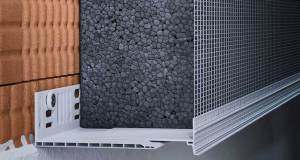
- Government
- Posted
Blind & shutter group calls for Part B changes
The British Blind & Shutter Association (BBSA) has challenged what it described as the defacto banning of shading on tall glass buildings in Part B of the building regulations, and is seeking a judicial review on several points, principally that the regulation is misconceived as it focusses on combustibility rather than flammability
This article was originally published in issue 30 of Passive House Plus magazine. Want immediate access to all back issues and exclusive extra content? Click here to subscribe for as little as €10, or click here to receive the next issue free of charge
Part B of the building regulations covers fire safety and was updated following the Grenfell disaster in London.
“The reality though is that England has a ban on glass skyscrapers due to latest changes to Part B of the Building Regulations.
The Shard, for example, could no longer be built,” a BBSA statement said. This is because shading is seen as vital to ensure occupant comfort in highly glazed buildings.
Since December 2018, combustible materials on external walls are banned. Whilst glass and frames are exempt, the government has confirmed that attachments within the façade or affixed to it are not and this includes blinds, PV and other technologies.
The regulation applies to buildings over 18 metres tall with any residential component. The statement said: “So quite simply, tall highly glazed buildings with any residential element are no longer possible due to these latest changes. We are not sure where this leaves building designers trying to meet Part L and TM59 [an overheating assessment methodology].”
“Dynamic shading incorporated within the glass façade is a recognised, proven and safe solution to overheating in highly glazed buildings.”
“The BBSA fully understands and supports the need to prevent flame spread and can confirm that, based on initial testing, our members’ products will not contribute to the problem of flame spread.” Further full-scale testing is currently underway to confirm this, the group said.
Quality shading is seen as essential to prevent overheating and unnecessary energy consumption for air conditioning, particularly as global temperatures rise.
“Banning dynamic shading products, that are crucial enablers of buildings with large areas of glazing by helping to achieve the all-important energy balance of buildings, is not a solution to the climate change problems we all face,” the statement said.







